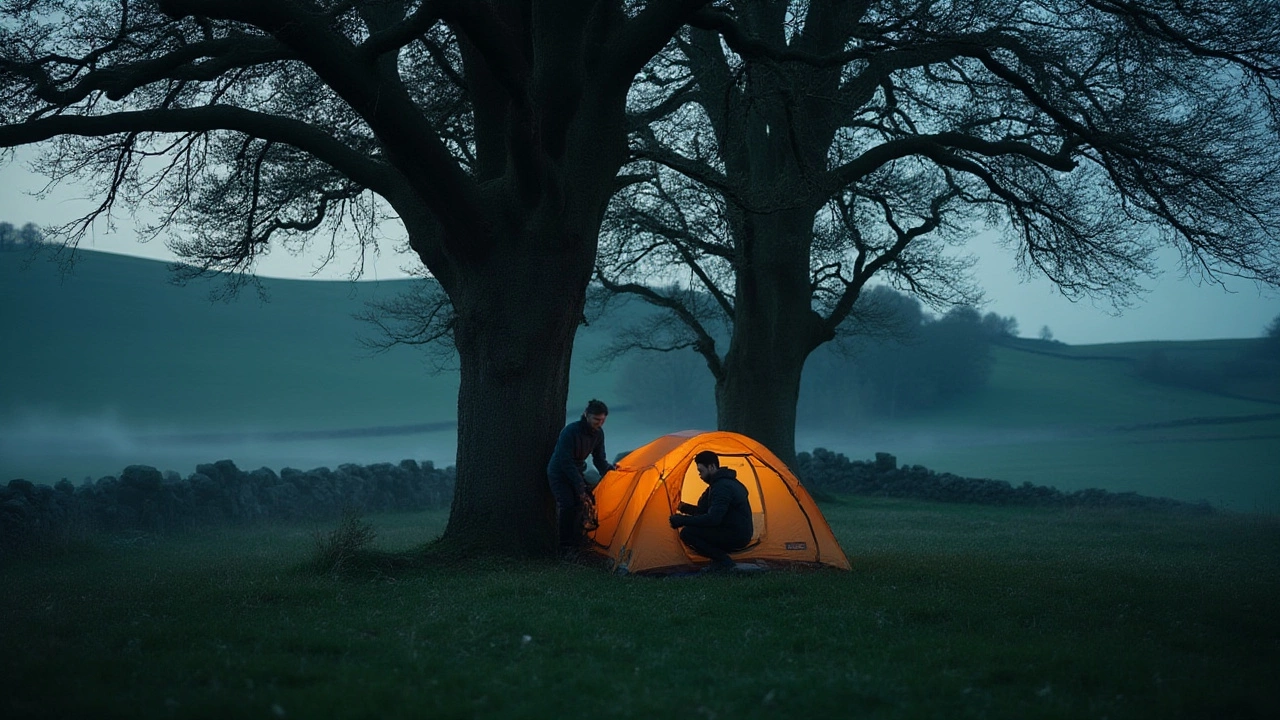Camping Legal UK – What You Can and Can’t Do
If you love sleeping under the stars, the UK offers plenty of spots, but not every patch of grass is free to use. Knowing the basic rules can save you a ticket, a rude rangers' visit, or a trip ruined by a forced move. Below we break down the most common areas – wild spaces, beaches, forest land and national parks – and give you straight‑forward tips to keep your camp legal and stress‑free.
Wild Camping: Where It’s Allowed
Scotland is the easiest place for wild camping. The Land Reform (Scotland) Act 2003 gives you the right to pitch on most uncultivated land, as long as you follow the “leave no trace” principle. Stay away from private gardens, farms, and any land where you see a sign saying “No Camping”. If you’re near a village, keep a respectful distance – a few hundred metres is usually enough.
England, Wales and Northern Ireland are stricter. You can only wild camp on land where the owner has given permission. A handy trick is to look for public footpaths that cross open fields; you may be able to set up for a night if no signs forbid it. Some local councils publish “wild camping hotspots” – check the council website before you go.
Regardless of region, always keep your camp small, tidy and quiet. Pack out all rubbish, use a portable toilet or dig a small cathole, and leave the ground as you found it. Most landowners appreciate a tidy camper and are less likely to ask you to leave.
Beach and Public Land: Stay Safe and Legal
Camping on UK beaches looks great in photos, but the rules vary by coast. In England and Wales most beaches are managed by local authorities who often ban overnight stays to protect wildlife and keep the area clean. Look for signs that say “No Camping” or “No Overnight Parking”. If you can’t find a sign, call the council or check their website – many post clear guidelines online.
Scotland’s coast is more relaxed. You can pitch on most sandy beaches under the same rights as wild camping, as long as you’re not in a designated nature reserve or a beach that’s part of a protected area. Even then, a short stay and a clean site are usually tolerated.
If you’re unsure, consider using a designated campsite nearby. They often cost a few pounds per night but give you amenities like water, toilets, and waste disposal – a huge upgrade over a makeshift beach spot.
National parks have their own set of rules. Most parks in England, Wales and Northern Ireland only allow camping in official sites. In Scotland, many parks follow the same open‑access policy, but some areas are closed to protect wildlife during breeding season. Always check the park’s website or visitor centre for the latest information.
Bottom line: before you park your motorhome or spread your sleeping bag, spend a minute looking for signage, checking the council or park website, and asking locals if you’re unsure. A quick phone call can save you hours of hassle later.
With these basics in mind, you can enjoy the freedom of UK camping without worrying about fines or confrontations. Pack light, respect the land, and keep your adventure legal – that’s the recipe for a great road‑trip memory.
-
 VIEW POST
VIEW POSTIs Stealth Camping Legal in the UK? Laws, Risks, and Insider Tips
Jul, 13 2025|0 CommentsGet the real deal on stealth camping in the UK: UK law, risks, what happens if you get caught, and how to stealth camp smarter. No fluff—just facts and honest tips.